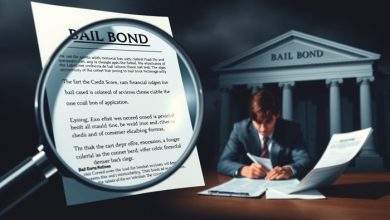
San Diego, located on the southern coast of California along the Pacific Ocean, is known for its mild climate, scenic beaches, and vibrant cultural scene. The city has a diverse economy, with strong industries in tourism, biotech, defense, and international trade. Its mix of urban and coastal communities makes it a unique setting for legal and criminal matters.
When someone faces criminal charges, confusion and fear often lead to myths about how the system works. Engaging a criminal defense attorney in San Diego early can help you avoid serious missteps. Below are some of the most common myths people believe—and the truths that clients should know before proceeding.
Myth 1: Only Guilty People Need a Defense Lawyer
Even if you believe you’re innocent, having legal representation is vital to protect your rights, challenge evidence, and ensure fair treatment. A strong defense helps prevent mistakes, wrongful convictions, or overreaching by prosecutors.
Myth 2: Defense Lawyers Simply “Get People Off”
Good defense attorneys work within legal and ethical boundaries. They review evidence, file motions, negotiate, and sometimes push for dismissal or reduced charges—not by rule-breaking, but by applying the law strategically, challenging unfair evidence, and advocating for their clients’ best interests.
Myth 3: Legal Help Is Always Out of Reach Due to Cost
Many defense firms use flexible fee arrangements (flat fees, payment plans) so clients know what they’ll pay up front. Elite Criminal Defense, for example, uses a flat-fee structure rather than hourly billing, helping clients avoid surprise bills. Moreover, if someone cannot afford private counsel, public defenders or court-appointed attorneys are available by law.
Myth 4: You Should Wait and See If Charges Get Dropped
Early intervention is often crucial. A skilled lawyer can act at critical moments—during questioning, before evidence is sealed, or at bail hearings—to protect your rights. Waiting too long may cost you access to witnesses, weaken your position, or let procedural deadlines pass.
Myth 5: Plea Deals Are Always Bad
Plea deals are a legitimate tool in many cases. They can reduce charges or sentencing exposure. A defense attorney evaluates whether a plea is in your best interest. In many real cases, going to trial is riskier than negotiating. The key is making that decision with full knowledge of your options and risks.
Myth 6: Defense Lawyers Only Handle Minor Crimes
A full-service criminal law practice handles a wide range of charges—drunk driving (DUI), assault, domestic violence, drug charges, even homicide or attempted murder. The same defense principles apply: challenging evidence, cross-examination, and procedural protections. The site emphasizes that their attorneys defend everything from DUI to serious felonies.
Myth 7: A Defense Strategy Must Always Be “Not Guilty”
There are many defense approaches. Some cases lack strong evidence, making dismissal or reduction possible. Others benefit from showing mitigating circumstances or negotiating alternative outcomes (like diversion). Attorneys assess which route offers the best outcome, rather than insisting on denial in every case.
Myth 8: A Lawyer’s Only Role Is in Court
Much work happens behind the scenes—investigating, collecting evidence, consulting experts, negotiating with prosecutors, filing motions, and strategizing defense angles. The courtroom moment is often a small part of the full picture.
Final Thoughts
Misunderstandings about criminal defense can put defendants at a huge disadvantage. Whether the myth involves cost, timing, the role of a lawyer, or defense strategy, believing them can lead to harmful decisions. In every criminal case, the more informed you are, the better your chances. A competent defense attorney can guide you through the process, challenge weaknesses in the case, protect your rights, and pursue the best possible resolution given your circumstances.
If someone you know is facing charges, debunking these myths early and securing representation before proceeding is the best first step to avoid unnecessary harm.




